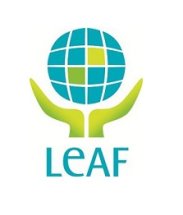
News
Micropollutants: applied research with powdered carbon and other recent developments
Elimination of micropollutants, and especially pharmaceuticals, from wastewater is one of the topics that LeAF has been working on for the past decade. Desk, laboratory and practical research projects have been carried out in this field on request of water boards, consultants and the Dutch government. And with our new employee Arnoud de Wilt, who is currently also doing a PhD about micropollutants, our expertise in this field will be reinforced.
The participation of LeAF in the PACAS project (Powdered Activated Carbon in Activated Sludge) is one of the most recent activities in this field. PACAS is financially supported by STOWA (Foundation for Applied Water Research) and part of the project “Schone Maaswaterketen” for the improvement of the water quality of the river Meuse. LeAF is strategic partner of Royal HaskoningDHV, who is contractor of this project. LeAF fulfils an advising and coordinating role and is involved in some laboratory tests.
The aim of the PACAS project is to determine the effectivity and efficiency of applying powdered activated carbon (PAC) in the activated sludge system of a municipal wastewater treatment system (WWTP) for the removal of micropollutants. Recently, some experiences with dosing PAC in the activated sludge system has been obtained in Germany and Switzerland and the results are promising: removal efficiencies of above 80% were achieved for the majority of the targeted micropollutants. In the PACAS project information is gathered specifically for the Dutch situation. Pilot research will be carried out at a municipal WWTP with two identical parallel treatment systems; the effect of dosing of PAC in one will be compared to the other (reference) treatment system. The results from this research about the efficiency and costs of this method, will be compared to the efficiency and costs of other treatment techniques for the removal of micropollutants, such as ozonation. PACAS has started at the end of 2015 and will continue until 2017.
More information about PACAS can be found here (in Dutch).
For more information about LeAF’s activities in this field, please contact Els Schuman
